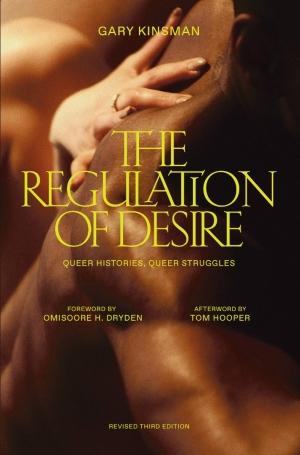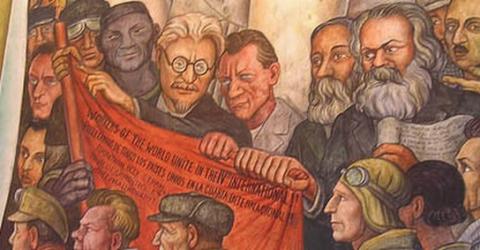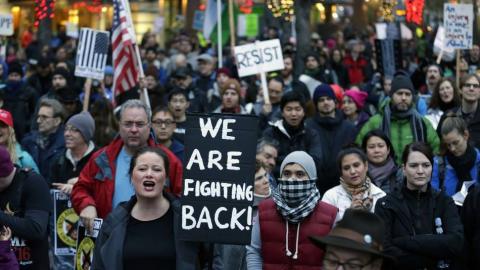Other Activities
Other Activities
Eighty years since the foundation of the Fourth International
26 October 2018October 26: Public meeting: Eighty years of the Fourth International
17 September 2018Eighty years ago, the Fourth International was founded, inspired by the ideas of Leon Trotsky. The tool created in the aftermath of October 1917, the Third (Communist) International, had been transformed into a branch of of the diplomacy of the Soviet Union, purged the national parties, and ended in Germany in a defeat without a fight to Nazism.
US politics Trump
30 March 2018US politics
30 March 2018March 30: The Left and social movements in Trump's USA
19 March 2018The memory of October 1917 in Russia today.
4 November 2017On the 19th of December 2016 Russian president Vladimir Putin signed the bill on celebration of the anniversary of The Great Russian revolution (1917-1922) on the state level. '1917' remains an important date for Russian history and the centenary is marked by a wide range of publications and discussions on this question. In addition to the the state-organized activities and discourse, there exists grass-roots discussions on the meaning of October 1917.
"October's short century" 1917-1989/91: Permanent Revolution in the Storm of Stalinisation
4 November 2017The stalinisation of the Soviet-Union was a counter-revolution within the revolution, and had disastrous consequences both for the SU and for the world revolution. But it neither ended October's revolutionary impact in the world, nor the process of Permanent Revolution – in spite of the attempt to submit the communist movement to "socialism in one country" and the "soviet model".
Sexual politics, 1917/2017: proletarian morality – and beyond?
4 November 2017The first decade of the October Revolution yielded a wealth of thinking and activism on sexual politics, notably Kollontai's insights into what we today call polyamory and gendered desire. Yet Bolshevik sexual politics suffered from a failure to support self-organization of the sexually oppressed, a more-than-semantic rejection of feminism, and uncritical reliance on science. Today, despite a recent renewal interest in Marxism in queer studies, the weakness of working-class organizations fuels ambivalence about Marxism's political and theoretical implications.
Bolshevism as a revolutionary collective
4 November 2017A key element in determining the Russian Revolution of 1917was the so-called “vanguard party” represented by the Bolsheviks led by Lenin. Equating 'Bolshevism' with Lenin, however, obscures more than it illuminates. More useful is an examination that reveals a convergence of complexities within the realms of party structures, personalities, and political outlooks. This highlights tensions between the organizational structures and cohesion of Bolshevism and the actual mass struggles and movements culminating in revolution.



